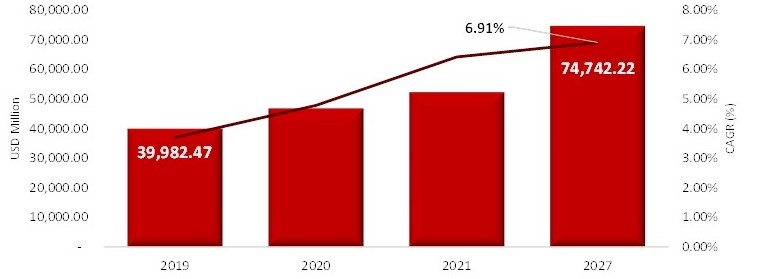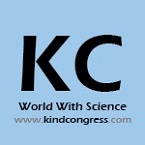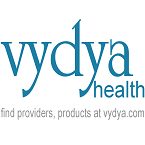Theme: Educating and Promoting Emergency and Acute Care Services Across the Globe
Emergency Medicine 2023
The Conference Series LLC Ltd is delighted to invite you to the “6th international conference on emergency and acute care medicine”, taking place at Paris, France on June 23-24, 2023. The conference was titled "Emergency Medicine 2023".
The term "emergency drugs" refers to medications that may be needed to address patients' acute therapeutic needs but are not promptly accessible from any other authorized source.
Life-threatening illnesses and injuries are now recognized much sooner, and now being addressed in a more efficient manner. Emergency room physicians treat seriously ill and injured patients, have a significant impact on their lives, and hardly ever get to see them again once they have recovered their faculties. In this area, nurses and doctors are always up against the unexpected and under extreme pressure to succeed. Although it's a terrible fact of life that they can't always succeed, these professionals nevertheless have the desire to give it their all. The emergency medicine professionals are motivated by this resolve to fight and the possibility to be the first to have an impact on patients' lives, frequently in the face of overwhelming odds.
Objectives:
- The ability to provide safe and effective patient care, professionalism, interpersonal and communication skills, lifelong learning aimed at continually improving medical knowledge and clinical practice, and integrating and influencing medical care systems to optimise patient outcomes are among the core competencies needed to successfully practise emergency medicine.
- Engage in a wide range of emergency medical activities, as well as activities in all associated fields, such as resuscitation, prehospital systems, toxicology, point-of-care ultrasound, and critical care.
- In the emergency environment, recognise and skillfully manage emergent, urgent, and non-urgent patient presentations.
- Take on graded duties for teaching, providing medical treatment, and conducting research.
- Develop the clinical, academic, and managerial abilities required to take the lead in the field of entrpre neurship in the future.
Target Audience:
- Nurses
- Nurse practitioners
- Physicians
- Physician assistants
- Pharmacists
- Pharmacy residents
- Students who handle critically ill patients in the emergency room.
Track 1: Emergency Medicine
The medical speciality of emergency medicine, commonly referred to as accident and emergency medicine, treats illnesses or injuries that need prompt medical attention. All ages of unplanned, undifferentiated patients are treated by emergency physicians. Your main duty as first-line healthcare professionals is to start resuscitation and stabilization as well as investigations and actions to identify and treat diseases in the acute phase. However, they can also operate in primary care settings, such as urgent care centers. Emergency physicians typically work in emergency departments of hospitals, prehospital settings through emergency medical services, and intensive care units.
- Bleeding.
- breathing problems.
- Epileptic seizure or fit.
- extreme pain
- chest pain
Track 2: Emergency Medical Services
A doctor who specialises in emergency medical services has extraordinary abilities and knowledge for providing critical care to injured patients or those who are seriously unwell outside of the hospital. It involves the primary patient care, transportation, and stabilisation in ambulances and helicopters with specialized medical equipment. Initial treatment for diseases like a heart attack or stroke can take place anywhere, including patient homes and remote locations. These experts undertake life-saving procedures outside of hospitals, sometimes while victims are still confined in vehicles or structures.
Track 3: Anesthesiology Critical Care Medicine
A physician with training in critical care medicine examines and treats patients with severe illnesses or injuries, especially those with multiple organ dysfunction and trauma victims who need care for several days, weeks, or even months. The intensive care unit (ICU) of a hospital is the top priority of operation for physicians as they also coordinate patient care among the critical care team, main physician, and other specialists.
Track 4: Internal Medicine Critical Care Medicine
A critical care physician with training in emergency medicine is skilled in the diagnosis, care, and support of seriously ill and injured patients, particularly those who have suffered trauma or have multiple organ dysfunction. The primary doctor, the critical care team, and other specialists work together with this doctor to coordinate the patient's treatment.
Track 5: Neurocritical Care
The primary goal of neurocritical care is to share cutting-edge information on all types of acute neurological treatment. It is geared toward treating patients with urgent neurologic problems by neurologists, neurosurgeons, anesthesiologists, neuro-intensivists, emergency physicians, and critical care nurses. A comprehensive overview of the most recent developments in intensive care neuroanesthesia, neurology, and neurosurgery is provided in Neurocritical Care. It contains information about novel treatment options and technology advancements.
Track 6: Psychiatric Emergencies
Acute behavioral changes that have a negative effect on a patient's capacity to operate in their surroundings are categorized as psychiatric emergencies. Professionals in the professions of psychology, medicine, nursing, and social work provide psychiatric emergency services. The first stage in an evaluation is to ensure the patient's safety as well as the safety of everyone nearby and the medical staff. The patient's overall well-being comes first, followed by the precise symptoms, and finally the underlying reason of the symptoms.
Track 7: Pediatric Emergency
Pediatric emergency medicine is a crucial component of emergency care that relates to the clinical side of emergency care for children. To teach professionals in this industry, numerous training programs are being developed. Our training program's main goal is to give students complete training in pediatrics emergency medicine so they can handle any difficulties on their own that would typically be handled by a subspecialist in the field.
Track 8: Medical Toxicology
Medical toxicologists are doctors who focus on the evaluation, prevention, examination of disease and injury, treatment, and exposure to medications, chemicals, biological agents, and radioactive agents. These specialists offer poison control centers and care for people in academic, clinical, governmental, and public health contexts. Adverse drug events, acute drug poisoning, addiction and withdrawal, drug abuse, venomous bites and stings, chemicals and hazardous materials, terrorism preparedness, and workplace exposures are among the main subspecialties of medical toxicology.
Track 9: Emergency Internal Medicines
In cases where a patient has an immediate medical need, emergency medications are employed. The medical speciality that deals with the prevention, diagnosis, and treatment of adult diseases is known as internal medicine or general medicine. In Commonwealth countries, doctors who specialise in internal medicine are referred to as internists or doctors. One of the key areas of emergency treatment is emergency internal medicine, which specifies what type of medication should be used and how it should interact with other medications during the recovery phase in addition to emergency medicine.
Track 10: Rural Emergency Medicine
Every government should be concerned about rural emergency medicine, but it is especially important in developing nations where the bulk of the population lives in rural areas and lacks access to excellent medical care. For this, you need a lot of resources and qualified personnel who are experienced in both emergency and routine medicine. Hospitals are concentrating on enhancing post-discharge services for senior citizens, such as early follow-up treatment following hospitalization to decrease readmissions and needless ED visits.
Track 11: Cardiac Emergency
Heart failure, a chronic ailment that can cause symptoms including shortness of breath, fluid retention, a rapid or irregular heartbeat, and much more, is one of the leading causes of patients seeking treatment in an emergency room. Cardiovascular crises are serious illnesses that must be treated right once to reduce morbidity and mortality. In recent years, the number of deaths from cardiovascular disease has decreased. Health professionals have organised themselves for the task with awareness, more efficient techniques, and pharmaceuticals that have made considerable progress in meeting new demands, both in pre-hospitalization settings and in emergency care units.
Track 12: Endocrine Emergency
Endocrine emergencies are a collection of potentially lethal illnesses that are frequently disregarded, which causes delays in both diagnosis and treatment and raises the already high rates of related mortality. Because the illness process is frequently overlooked, the basic endocrine emergencies are not well defined. Endocrine emergencies are frequently observed in patients with known endocrinopathies; in previously undiagnosed people, the emergency may be the first sign of the condition. Significant consequences or even death could result from a delay in diagnosis or treatment of several endocrine disorders.
Track 13: Gynecological Emergency
Women around the world who are of reproductive age frequently suffer from gynecological problems. Due to the inadequate healthcare infrastructure in impoverished nations, gynecological emergencies create significant difficulties. The most frequent gynaecological emergencies are complex ovarian cysts, ectopic pregnancies, severe pelvic inflammatory illness, and spontaneous abortions. Menstrual problems, gynecological cancers with bleeding, laceration during sexual activity, and sexual abuse are additional gynecological illnesses that might manifest as emergencies. The most frequent life-threatening gynecological crises in the tropics are ectopic pregnancy and complications from botched abortion.
Track 14: Respiratory Emergency
The lung does much more than just "basic" gas exchange. To prevent large, solid objects from reaching your brain, heart, or other vital organs, one of their functions is to remove them from circulation. A significant illness or damage causes the lungs to become extremely inflamed, which results in the respiratory emergency. Inflammation leads to the collapse of air sacs and the leakage of fluid into the lungs from adjacent blood vessels. The lungs will eventually fill with so much fluid that breathing will become impossible and result in death. Breathing and the patient's airway are crucial to his survival. According to a significant prospective European experiment, 16.1 percent of all patients receiving mechanical ventilation and 7.1 percent of patients hospitalized to an ICU both experience acute lung damage.
Track 15: Emergency Nursing
The first professional that patients encounter in the emergency room is typically an emergency nurse who is tasked with screening patients when they arrive. Therefore, the emergency nurse must be adept at performing thorough physical examinations quickly and accurately as well as at spotting potentially fatal illnesses early on. Following "collaborative practise standards" or "standing orders" set by the hospital's emergency medical team; emergency nurses may occasionally order specific tests and drugs.
Track 16: Gediatric Emergency
Despite the fact that knowledge in the field of geriatric emergency medicine is quickly developing in Europe, change is still not being implemented widely. There are several chances to provide better care for this vulnerable and expanding patient group in routine clinical treatment that are lost. The objective was to create specialized clinical guidelines for geriatric emergency medicine that could be shared across Europe.
Track 17: Pain Managment
Medicine treats illnesses and injuries to promote and hasten the healing process. In order to lessen suffering throughout therapy, recovery, and death, it tackles uncomfortable sensations like pain. In three situations, medicine's job is to alleviate pain. The first occurs when a painful disease or injury is unresponsive to therapy and continues. The second situation is when pain lingers even after the pathology or damage has healed. The third situation is when the source of discomfort cannot be determined by medical research. Pharmaceutical measures, such as painkillers, antidepressants, and anticonvulsants; interventional procedures, such as physical therapy, exercise, and the application of ice or heat; and psychological measures, such as biofeedback and cognitive Behavioural therapy are some of the treatment options for chronic pain.
Track 17: Advanced Medical Treatment
Comparing how various illnesses and disorders were handled in the past with how they are now, modern medicine has undergone a life-altering evolution. There is an increasing need for cutting-edge medical equipment due to the increased number of procedures performed to address several chronic ailments. Over the past century, technological advancements have produced ground-breaking discoveries in the realm of medicine. We've gone a long way from the discovery of penicillin to the creation of several essential diagnostic and therapeutic equipment kinds.
Track 18: Alternative Medicine
Any approach that seeks to replicate the therapeutic benefits of medicine while lacking biological plausibility, testability, repeatability, or clinical trial proof is considered alternative medicine. Alternative medical methods are combined with those used in conventional care in complementary medicine (CM), complementary and alternative medicine (CAM), integrative medicine (IM), and holistic medicine. When utilised outside of their intended contexts and without the required scientific justification and support, traditional practises are deemed "alternative." New age or pseudo-medicine are frequently used pejorative names for related activities, with little differentiation from quackery.
The market for emergency medical service (EMS) goods is expanding primarily due to rising medical service costs and investments, as well as an increase in trauma injuries. The market for items used in emergency medical services experienced a CAGR of 6.6% from 2015 to 2021, according to Fact.MR, a supplier of market research and competitive information. The market is expanding overall as a result of rising healthcare costs and the number of hospitals. Market expansion is hampered by product replacement due to malfunction and growing market penetration. Growing technological progress is expected to lead to promising business opportunities. On the other hand, a shortage of qualified workers can prevent the market from expanding. It is anticipated that the market for emergency medical services (EMS) products will grown Top of Formwith the development of technology, the majority of healthcare professionals today see emergency medical services more as a part of the larger healthcare system that provides swift and mobile responses rather than as a stand-alone emergency response.
The majority of patients who get emergency medical services (EMS) report that the field is quickly integrating into the entire healthcare system, suggesting that "mobile integrated healthcare" is a better name for the field than "emergency medical services."

EMERGENCY MEDICINE 2023:
We gratefully express thank all our pleasing speakers, conference attendees, students for making Emergency Medicine 2023 Conference the best ever!
The “6th International conference on Emergency & Acute Care Medicine” was held during June 23-24, 2023 Paris, France .The generous response was received from the Editorial Board Members of Journals along with scientists, researchers, students, and leaders from various fields of emergency medicine, who made this event a grand success. We are acknowledging with gratitude and support by all the Editorial Board Members of emergency medicine Case Reports for their valuable suggestions for the growth of the Organization.
The conference was initiated with the Honorable presence of the Keynote forum. The heartfelt gratitude to the Organizing Committee Associates, many external experts, company representatives and other eminent personalities who supported the conference by facilitating the discussion forums. We also took the privilege to felicitate the Organizing Committee Members, Editorial Board Members and Media Partners who supported this event.
The keynote Forum of the conference as follows:
- Sergey Suchkov, Institute for Global Health of MGUPP, Russia.
- Huang Wei Ling, Medical Acupuncture and Pain Management Clinic, Brazil.
By the outstanding accomplishment of Emergency medicine 2023, it is proud to announce the “6th International conference on Emergency & Acute Care Medicine” to be held during June 23-24, 2023 in Paris, France. Emergency Medicine 2023 has been organized with the intention and the specific intent of promoting the development of new perspectives and ideas for exploiting the high level of Awareness attained by the scientific community in various Emergency & Acute Care Medicine Services.
Let us meet at @ EMERGENCY MEDICINE 2023
Conference Highlights
- Emergency Medicine
- Emergency Medical Services
- Anesthesiology Critical Care Medicine
- Internal Medicine Critical Care Medicine
- Neurocritical Care
- Psychiatric Emergencies
- Pediatric Emergency
- Medical Toxicology
- Emergency Internal Medicines
- Rural Emergency Medicine
- Cardiac Emergency
- Endocrine Emergency
- Gynecological Emergency
- Respiratory Emergency
- Emergency Nursing
- Geriatric Emergency
- Pain Management
- Advanced Medical Treatment
- Alternative Medicine
To share your views and research, please click here to register for the Conference.
To Collaborate Scientific Professionals around the World
| Conference Date | June 23-24, 2023 | ||
| Sponsors & Exhibitors |
|
||
| Speaker Opportunity Closed | |||
| Poster Opportunity Closed | Click Here to View | ||
Useful Links
Special Issues
All accepted abstracts will be published in respective Our International Journals.
- Journal of Palliative Care & Medicine
- Journal of Biomedical Sciences
- Alternative & Integrative Medicine
Abstracts will be provided with Digital Object Identifier by











